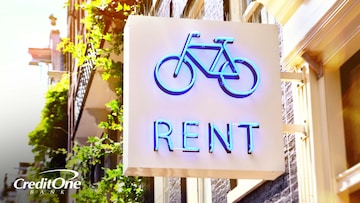What Credit Score Do You Need to Rent an Apartment?
October 22, 2024
You’ve found the perfect location, but is your credit in the right place? Find out what you need before you rent an apartment.

Introduction
While you look for a rental, you can expect to have a few parts of your credit report looked at. But what credit score do landlords look for? What else do they consider when you apply?
Let’s take a look at how your credit score and other factors can help you get that apartment.
What Credit Score Do You Need to Rent an Apartment?
Since landlord and property manager policies can vary a lot, there isn’t really one standard credit score you need to rent an apartment. But we can still make an educated guess about what credit score can help you rent an apartment.
A 2020 report by Rent Cafe found that the average credit score for U.S. renters was 638. Averages in specific cities may be higher (719 in San Francisco) or lower (607 in Tulsa), so those all give us some good ideas for what it takes to be approved.
You’ll want to account for local factors but if you’re in the Fair to Good credit score ranges, you’ll have better chances of approval.
Does a Rental Credit Check Affect Your Credit Score?
There are different kinds of credit inquiries, or “pulls,” which may or may not affect your credit score. Getting your credit checked for a rental is usually a soft inquiry, which doesn’t affect your credit score. However, you can always ask a landlord or management company if you’re concerned about a hard pull, which typically will impact your credit score, at least temporarily.
What do rental companies look for in a credit check?
Besides credit score, when a rental company or landlord pulls your credit report, they will likely look for negative factors like bankruptcies, late payments, items in collection, unpaid utilities, loan defaults and evictions. Of these factors, evictions will likely hold the most weight.
Your credit balances and debt-to-income ratio may also be considered, to ensure that you have enough monthly cashflow to afford your rent.
How To Pass a Rental Credit Check
To pass a rental credit check, you’ll want to think about that list of items landlords are most likely to look at and make sure those factors look good. Keep making on-time payments and use credit responsibly.
To that end, it can be a good idea to request a free copy of your credit reports while you’re applying for apartments. Not only does this help you see where you stand, you can also see if there are errors on your reports that might get in the way of approval.
And speaking of errors, you want to limit the chance that a landlord’s screening service makes a mistake. Be sure to give accurate and full information for the check, so someone with a similar name to yours doesn’t throw a wrench in your plans.
Improving Your Credit Score for Future Rentals
Much like with passing a rental credit check, to improve your credit score, you’ll want to be current on your payments and use your credit responsibly.
You’ll also want to pay off any balances in collections, pay off any debt that you can and consider your monthly expenses in general.
Many landlords use a metric called rent-to-income to determine if applicants can afford the monthly rent. The frequently cited sweet spot is no more than 30% of gross income going toward rent. Landlords may also consider a similarly named metric called debt-to-income — if you have a relatively low amount of debt, landlords could consider a rent-to-income of more than 30%.
Tips for renting with new or bad credit
If you’re approaching this with no credit history or are in the process of rebuilding credit, having a co-signer or rental references can also give you a leg up.
Offering to pay a higher security deposit or to pre-pay a few months of rent in advance may also help.
Finally, applying for a secured credit card can help you build or rebuild your credit.
Alternatives to Credit-Based Rentals
One alternative is to stick to rentals from private landlords. It’s generally easier to negotiate with an individual than a large rental company.
Another good alternative is to consider a roommate. The roommate with a higher credit score will have a better chance at getting an apartment and this comes with the added benefit of often being a cost-saving measure, too.
Finally, you can also look into a month-to-month lease. These are usually more associated with furnished apartment listings, but sometimes forgo a credit check since they are short-term agreements.
Bottom Line
You don’t need the highest credit score or a perfect credit report to be approved for an apartment, but every little bit can help. And even if you’re building your credit, you can improve your odds of finding an apartment.
Now that you’ve learned what landlords look for on your credit report, you’ll be better equipped for the apartment hunting process.
If you’re going to be looking for an apartment in the future and want to proactively build or rebuild credit with a new credit card, see if you pre-qualify for one from Credit One Bank.



